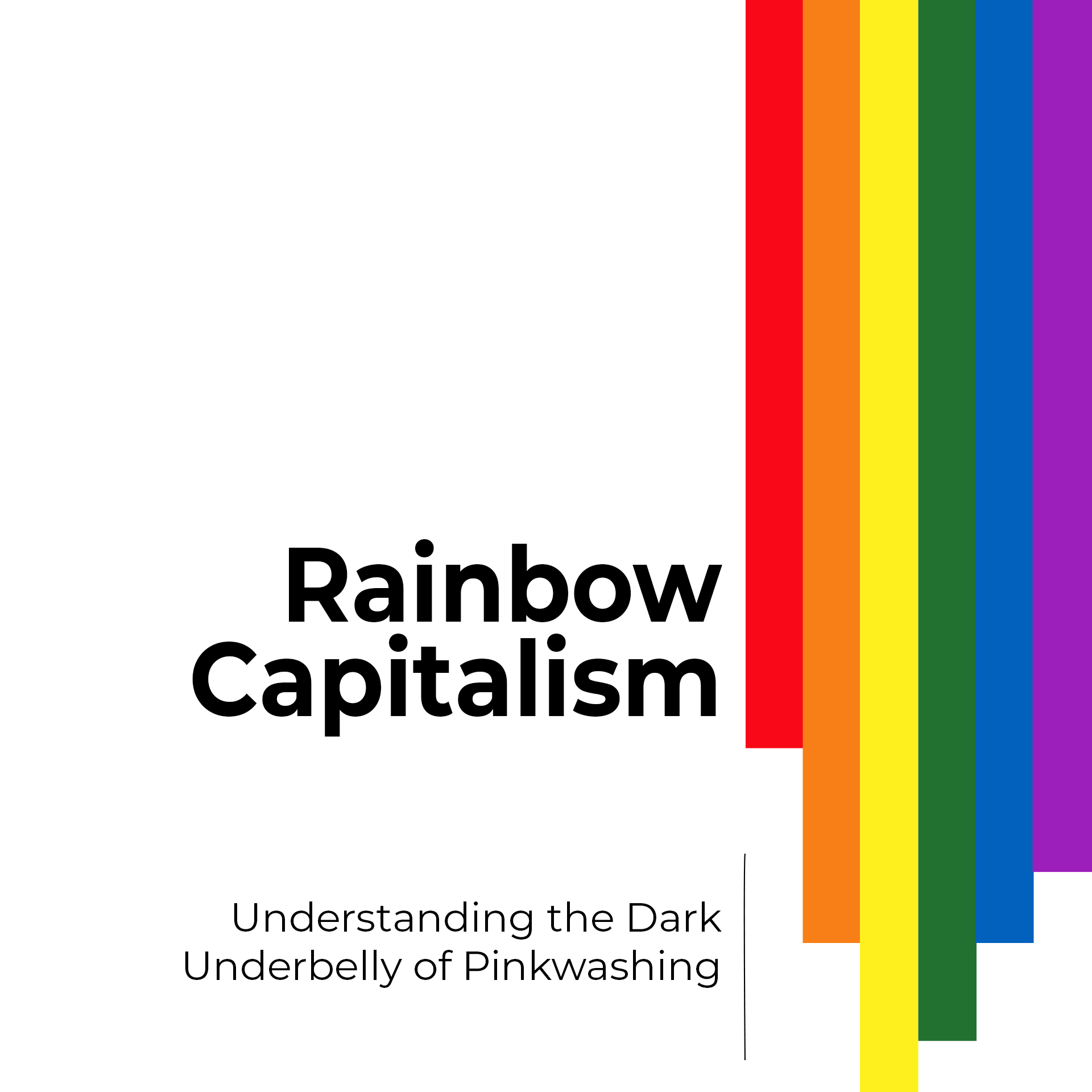CATEGORIES
#DEI #Gen Z #LGBTQIA+ #Work CultureOverview:
- Pinkwashing has become a corporate sellout.
- The real representation of queer identity needs to be silently advocated by Allies.
- Rainbow Capitalism is real and we all need to watch out for it.
- The value of consumer trust and empathy must never be underestimated.
With increasing globalization, the entry of Gen Z into the workforce has offered new avenues for marketing. Brand and reputation management have evolved in lieu of expansive Internet exposure and social media marketing. To be considered “woke” and gain Gen Z consumers, corporate industries are found employing superficial campaigns known as Pinkwashing.
What Is Pinkwashing in Corporate Culture?
It is a practice where a company presents itself as gay-friendly and progressive to downplay its negative behavior. There’s a concerning rise in Rainbow Capitalism, corporations boost ‘queer friendly policies’ during Pride Month on the occasion for profit.
From pictures of Israeli soldiers with rainbow flags to Dabur India’s ad, gay rights are an effective marketing tool.
Unfortunately, this expectation of having to put up with pain doesn’t stop at intrusive procedures itself.

It is essential to understand how companies use this tactic. During Pride Month, many large corporations increase their sales by selling pride-themed merchandise. However, the profits gained by these techniques are not distributed to LGBTQ non-profits or for the betterment of queer employees.
It sets a dangerous precedent. As merchandise marketing increases, so does the toll of pink money, which refers to the buying capacity of LGBTQ+ community. The collective market and purchasing power of the LGBTQ+ community is expected to be over billions in the US alone.

As awareness continues to grow over the years, examples of rainbow capitalism have been addressed and called out by activists. Companies such as Amazon, Barclays, and JC Penny were already well known for their pink smokescreens.
What’s more, is that companies such as Primark and BAE Systems present themselves as queer-friendly at pride events. But in reality, Primark was exposed to allying with extremist countries like China, Turkey, and Myanmar through manufacturing. Additionally, BAE Systems has been found to supply fighter jets to South Arabia, which contributed to the genocide in Yemen.
Pinkwashing Marketing Strategies
Its impact on the business sector has already proven to have a skyrocketing profit margin. Following the historic judgment against the conservative Section 377 of the IPC, came the nation-wide celebrations of LGBTQ+ Pride. In lieu of this, many Indian companies promptly changed their logos to reflect their support. Swiggy, Zomato, Indigo and Airbnb India to name a few. Then again, can a logo and a functionary line about love be enough to bring about real change?
The fact remains, performative allyship and tokenism can never compensate for a genuine commitment to the betterment of queer employees.
The principles of diversity, equity and inclusion (DEI) are emerging as shining guides against rainbow capitalism scams. DEI concepts have been attributed to understanding the essential difference between true advocacy and marketing ploys. True advocacy shines through with inclusive employment policies, prevention of workplace harassment, and seminars on sensitivity. Many organizations have now begun employing DEI consultants to determine their position in the woke hierarchy.
For instance, IndiGo provides an informative page on how to be a good ally towards queer persons. However commendable this effort may be, it comes with limitations such as the lack of the gender-neutral pronoun ‘Mx’ in their ticket booking form.
Another endeavor was taken by Tech Mahindra. In their policy, same-sex couples get 12 weeks of paid leave for adoption and a bereavement leave of three days. This beautiful initiative demonstrates support and empathy with genuine efforts towards inclusion.

Ethical Issues in Corporate Pinkwashing
Corporate social responsibility:
Multinational companies have a larger responsibility to support just causes. Not only does it boost their brand image, but it also emphasizes a sustainable business model. Rainbow Capitalism contributes to the detriment of LGBTQ+ community by washing out their identities to mere tokenism. Inclusive hiring practices should and do play a huge role in ensuring the safety of queer employees. Moreover, there are many other contingencies that one must remember to consider. Such as, what happens if queer employees are stationed in branches where conservative prejudice reigns supreme?

Awareness campaigns:
Transparency and accountability have a much larger impact than merely posting a rainbow flag on social media once a year. Instead of donating under the table to neoliberal right-wing sectors as dictated by rainbow capitalism. Multinational corporations should allocate their resources to LGBTQ+ organizations and charity initiatives. They should support LGBTQ+-owned businesses by importing local supplies from them. Moreover, having professional LGBTQ+ activists for educational seminars would be a welcome alternative to rote PPTs preaching DEI concepts.
For instance, the multinational company, Tata Steel, has an employee resource group for their LGBTQ+ employees, namely WINGS. Tata Steel offers medical benefits for gender confirmation surgery and menstrual leave. They are also committed to supporting transgender employees during their transition. One of the founding members of WINGS, Anubhuti Banerjee, is a proud trans employee of the company.
Conclusion:
Rainbow Capitalism is a betrayal of the trust consumers place in companies. It sets a dangerous precedent that exacerbates the dangers of essentializing queer diversity into pinkwashing. Corporate giants must demonstrate accountability for using profiteering tactics without considering the impact on the careers of queer employees.
FAQs:
What are some examples of pinkwashing?
Examples of pinkwashing include companies that prominently display rainbow flags during pride month but donate to anti-LGBTQ+ politicians. Another example is when companies market products specifically to the LGBTQ+ community without supporting their rights or their initiatives.
How can consumers identify genuine support versus rainbow capitalism?
Consumers can identify genuine support by looking for companies that have a consistent track record of supporting LGBTQ+ rights. They must have inclusive workplace policies, partnerships with LGBTQ+ organizations, and donations to LGBTQ+ causes. Transparency and accountability in their actions are key indicators of genuine support.
How can the LGBTQ+ community respond to rainbow capitalism?
The LGBTQ+ community can respond to rainbow capitalism by advocating for genuine support and holding companies accountable for their actions. This includes calling out superficial marketing tactics, supporting businesses that demonstrate real commitment to LGBTQ+ rights, and raising awareness.


